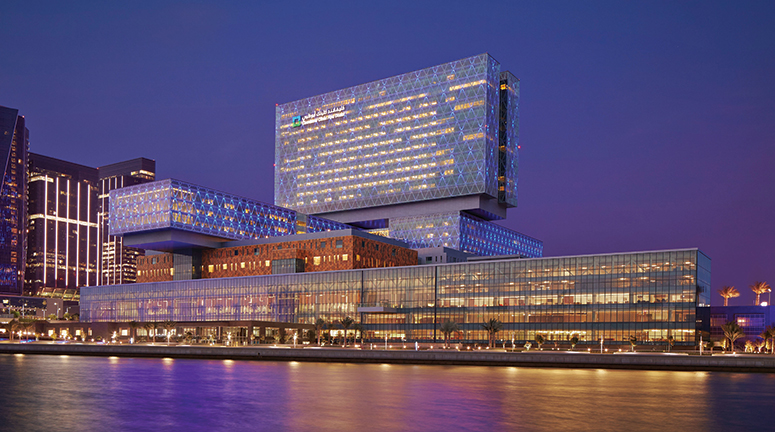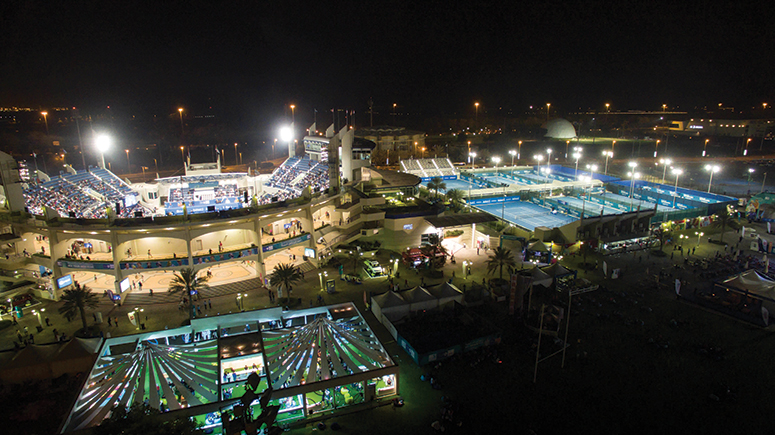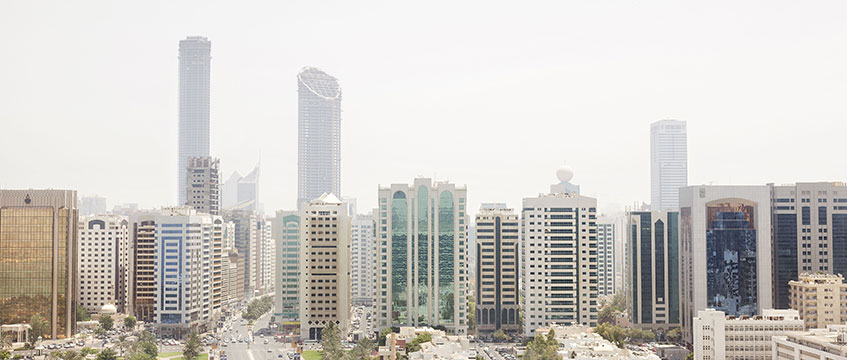With oil prices fluctuating, the emirates are increasingly looking for cash injections from UK, EU and US investors. But to help international investors navigate a confusing market, experts say states must cooperate to create centralised regulations
“If you are really frank about how transparent real estate in the Gulf region is, I think you would say a lot more needs to be done.”
Addressing a room full of local developers, investors and property players at EG’s Middle East Real Estate Forum in Dubai last month, director of RICS Middle East & North Africa Rob Jackson was not afraid to tell it how it is.
For years, overseas investors have been dancing around the real estate opportunities offered up by the Emirati states and their neighbouring GCC cousins. But a significant flow of capital from the west has never really got off the ground. The 2008 crash, which affected the entire region and Dubai in particular, did nothing to help matters. As Hussain Sajwani, chairman of Dubai-based luxury developer Damac, puts it: “Dubai’s reputation was very badly hit in 2008 and 2009. Since then the market has recovered but investors and fund managers are still nervous.”
Part of the problem is that, recovery or not, concerns around transparency that predated the crash are still a major blocker when it comes to the GCC’s draw as an investment option – particularly for European and US institutions. And Jackson warns that significant changes need to be made if the region ever hopes to move past this hurdle.
“How transparent are we? Sadly not very at the moment and we can’t rely on petrochemicals to fund development forever. We need to create a much more appropriate environment for investors to work in this region.”

Local promotion
The good news is that the locals not only agree, they are taking steps to rectify the situation. From the chief executive of Nakheel, one of the region’s biggest and best known developers and the company behind Jumeirah Palm, to the chief executive of the Sharjah Investment and Development Authority, the GCC’s major property players are actively addressing the issues. And solutions are slowly but surely being put in place – from the creation and promotion of real estate investment trusts (REITs) to a focus on tightening up laws and regulations.
But will it be enough? Just three years out from Expo 2020, a six-month long exhibition of trade, innovation and products from around the world between held in Dubai on a 483-hectare site, the staging of the world fair and the preparations leading up to it are expected to result in 277,000 new jobs in the UAE, an injection of nearly $40bn (£31bn) into the economy, and an increase in visitors of up to 100 million. The hope is that a strong display of dedication to a more open, transparent region will be the boost the Gulf needs to attract the overseas institutional investors it is missing. Particularly off the back of fluctuating oil prices and renewed concerns that petrochemicals can no longer be relied upon as the main funding source for swaths of Middle Eastern development.
“There needs to be a concerted effort to move away from the hydrocarbon economy,” says Steve Morgan, senior partner at Cluttons. “There already has been in Dubai and Abu Dhabi to a degree. But it is very hard to do. Still, oil prices now are below what most companies in the region need to balance their fiscal books – around the high $60s and low $70s a barrel. All GCC countries have that looming issue to deal with – weaning themselves off that hydrocarbon income.”
This is where attracting overseas investment comes in. Once a nice thing to have, fluctuating oil prices mean many Gulf countries are now actively courting European and American investors in the hope of a buoying cash injection.
Dubai-based Nakheel has had a specific focus on attracting money from the UK and Europe over the last two years. “There is an attractive business model here in Dubai,” says chief executive Sanjay Manchanda. “Look at price per square foot. If you compare Dubai prices with those in Hong Kong and Singapore, New York and London, they are very competitive and much lower. Then of course investors want to know the return on their investment. And today the returns on real estate in Dubai are around 5-10%.”
Despite the figures, Manchanda concedes that the Middle East is “missing” the foreign institutional investors it needs because of a tough-to-navigate market. Not least given the complexities that exist across the GCC region.
“Sometimes navigating the nuances between the different regions is quite a challenge,” says Cluttons’ Morgan. “You never really know what you are getting. There should be centralised regulations.
“But we have come a long way. Back in 2008 there was no regulation at all really and now there is a move towards a more federalised system. I think the mindset is there to deliver that.”
Marwan bin Jassim Al Sarkal, chief executive of the Sharjah Investment and Development Authority, says the drive from the emirates themselves is there, and agrees that collaboration across all seven states would be key to attracting overseas interest.
“Many things still need to be fixed. We have maturity as a market and yet we have policies and regulations that aren’t the same across all seven emirates. They need to be the same so we can be clear and attract investment.
“Every emirate has its own strategy but policies between them need to stay the same. Someone has to take the lead and, at the moment, there is no federal body doing that.”

Investment-friendly landscape
In the interim, measures are being put in place to create a more investment-friendly landscape across the GCC, namely through the introduction of REITs. Magali Mouquet, executive director of Emirates REIT – the first REIT in the region when it launched in 2010 – says she hopes it would spark the introduction of other, similar regulated investment vehicles: “What we discovered when we set up REIT was that everyone really appreciated the transparency, and we hope to see many more emerging in the region.”
The UAE’s first residential REIT was established in February this year when Equitativa – the company behind Emirates REIT – teamed up with Al Hamra Real Estate Development and National Bonds to create the investment trust that will comprise around 500 homes in Dubai and Ras al-Khaimah (RAK).
Beyond the transparency issues, there are also questions around the attractiveness of the market itself. In Dubai, the region’s most active market, values across the freehold residential market fell by 8.8% in 2016 according to research by Cluttons, marking the market’s weakest performance in five years. In the offices sector, rents across the 24 submarkets remained steady but global economic anxiety and a subsequent scaling back of short-term expansion projects, particularly among international corporate occupiers, is set to take its toll. That and the proposed introduction of value added tax in the region in early 2018.
“Uncertainty stemming from this is causing some nervousness,” says Murray Strang, head of Cluttons Dubai. “For many international occupiers, this is something they will be able to take in their stride, given they are used to taxation regimes in their own home markets. However, for international occupiers from the UK or Europe, the prospect of a 5% tax on rental payments, combined with a rise in operational cost fuelled by the strength of the US dollar, may dampen take-up activity in the short to medium term.”
Despite this, many agents have now called the bottom of the residential market and the expectation is that rents will start to rise across commercial and residential, boosted by the ‘expo’ affect ahead of the world event in 2020.
“While short-term prospects appear relatively subdued, our view is that the market fortunes remain tied to the looming 2020 World Expo,” says Strong. “At this stage the mega event is one of the primary upside risks to our outlook. We know from experience that the lag between the take up of office space and the subsequent impact on the residential rental market is usually six to nine months. Construction contracts worth AED11bn (£2.2bn) looked to Expo, are expected to be announced throughout the course of 2017, driving up the rate of job creation and tenant demand in its wake.”
The market remains strong on the retail side given the propensity in Dubai specifically and the UAE in general for shopping malls. Last month Nakheel awarded a contract worth £900m for the Deira Mall on Deira Islands.
“Dubai continues to cement its position as the world’s leading shopping destination and is already home to Dubai Mall – the most visited shopping mall in the world,” says Cluttons’ head of research Faisal Durrani. “Nakheel’s announcement of the £900m contract for Deira Islands mall will become the fifth target in the world, nudging Dubai Mall into sixth place globally in terms of net leasable area.”
In Abu Dhabi, Cluttons research reports weak economic conditions, rising inflation, and the high cost of living curbing demand, resulting in high vacancy rates in both the residential and commercial markets.
“Although the market conditions look glum, rising vacancy rates and falling rents are creating an excellent opportunity for occupiers to cherry pick from locations they have previously been priced out of, while also remaining firmly in the driving seat during rent negotiations. The market outlook for spring 2017 indicates that 2016 saw capital values across Abu Dhabi’s residential investment areas decrease by 6% on average.”
As for investment opportunities in the lesser known emirates, Sharjah could attract interest as it looks set to reposition itself as a tech hub (see box) and beyond the UAE, Bahrain hopes its focus on healthcare development could catch the attention of western investors (see p58).
While the current state of the markets across the UAE and the wider Gulf region might not appear instantly attractive, the combination of Expo 2020 and a renewed local focus on addressing lingering transparency issues could fuel a resurgence over the next three years and beyond. With Cluttons predicting the bottoming out of the Dubai market before the end of 2017, opportunities for risk tolerant investors looking to get good deals could be the catalyst that sparks the region’s turnaround.
Sharjah: a technology emirate in waiting?
Marwan bin Jassim Al Sarkal, chief executive of the Sharjah Investment and Development Authority, is positioning Sharjah as the Gulf’s tech hub. He believes the current focus on education and culture should be built on to create a new TMT hub.
“To take the Sharjah education hub to the next level, the government has decided it will be focusing on research, technology and innovation. And because we have a huge number of SMEs functioning in Sharjah, more than 55,000 companies, we are looking to create an innovation centre that will make them competitive for the future. To make that happen the government has created a new research and technology park.”
He adds that the Arab world is missing innovation: “It used to focus a lot on innovation… now is the time to focus on it again and become more competitive for the future.”
Click here to listen to the full interview.
Mubadala’s long-term strategy
Ali Eid AlMheiri, executive director, Mubadala Real Estate & Infrastructure
What is Mubadala’s overarching strategy and vision for development in Abu Dhabi?
Mubadala Investment Company – formed as a result of the merger between Mubadala Development Company and IPIC – is aligned with the government’s vision to diversify Abu Dhabi’s economy, accelerating growth and creating long-term returns.
Mubadala is active in 13 sectors over 30 countries around the world, organised across four investment platforms of significant scale: petroleum and petrochemicals; technology, manufacturing and mining; aerospace, information and communications technology, and renewables; and alternative investments and infrastructure.
The Mubadala Real Estate & Infrastructure unit, part of the alternative investments and infrastructure platform, operates as an equity partner and asset manager, focusing on infrastructure projects and real estate investment opportunities, both within the UAE and overseas.
Our core focus is developing the physical and social infrastructure required to underpin a structured and rapidly evolving society.
Our business ranges from masterplanning and developing Abu Dhabi’s business and lifestyle destination, Al Maryah Island, to building social infrastructure that forms the foundations of our knowledge-based economy.
Al Maryah Island is an investment and financial free zone designed to meet Abu Dhabi’s long-term commercial and community growth needs.
Home to Abu Dhabi Global Market, the world’s newest international financial centre, it features world-class commercial, hotel, retail, leisure, healthcare, and residential components.
Our social infrastructure assets feature an emphasis on educational infrastructure, with Zayed University, UAE University and Paris-Sorbonne University Abu Dhabi all being part of our portfolio. Zayed Sports City, a sports and entertainment hub, also sits within our portfolio, alongside international investments.
How is the company adapting to the market and navigating challenging times?
We know that the real estate industry is cyclical in nature, and we are accustomed to the periodic fluctuations caused by macroeconomics.
We continue to take a long-term view with our investments, and we project a continued rise in Abu Dhabi’s population; therefore, our strategy very much remains rooted in our vision: to be a catalyst for the development of Abu Dhabi’s economy.
As a result, while we monitor markets closely and remain watchful, we don’t lose sight of the bigger picture. Having said that, we strategise in the same way as all real estate developers do: we evaluate our portfolio, analyse the performance of our yielding assets and plan future investments.
We are currently primarily focused on the UAE but we are interested in exploring investment opportunities in the US and Europe, as well as emerging markets around the world.
How is Abu Dhabi likely to progress in terms of development and economic growth over the next few years?
According to recent research released by the First Abu Dhabi Bank, the UAE is expected to lead economic growth in the region this year, driven largely by the efforts of the government to diversify the economy and create expansion in the non-oil sector.
Our vision is to contribute to this growth through strategic investments that drive long-standing economic value and create social benefits.
To send feedback, e-mail emily.wright@egi.co.uk or tweet @EmilyW_9 or @estatesgazette











